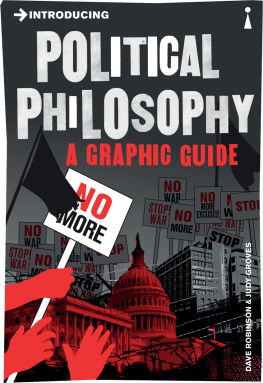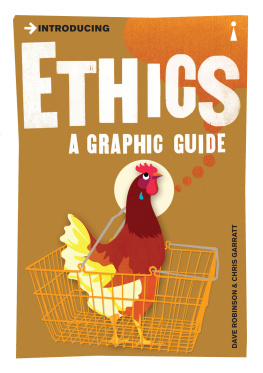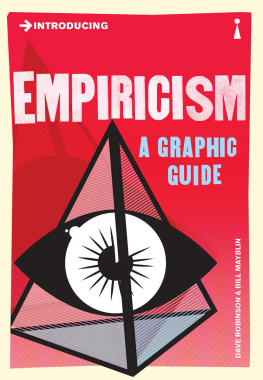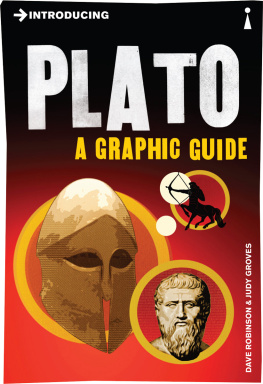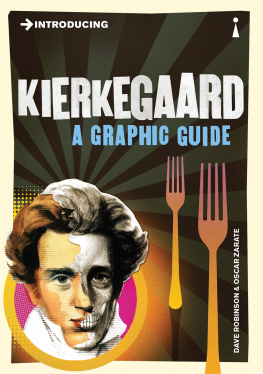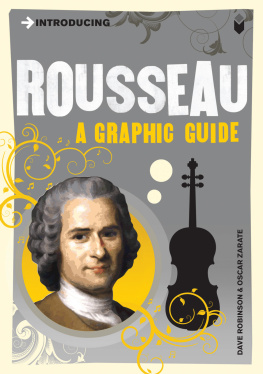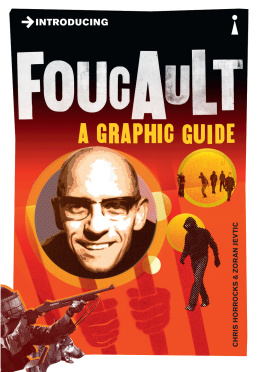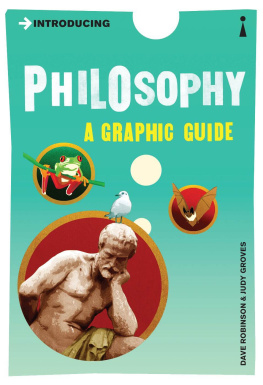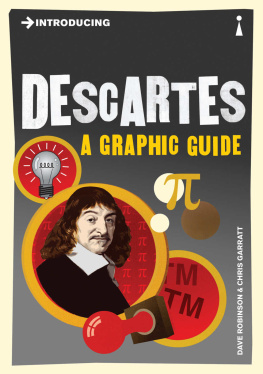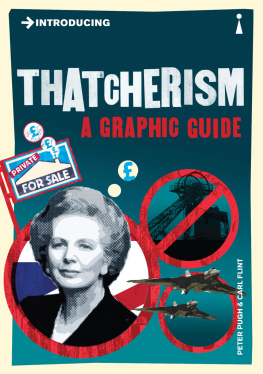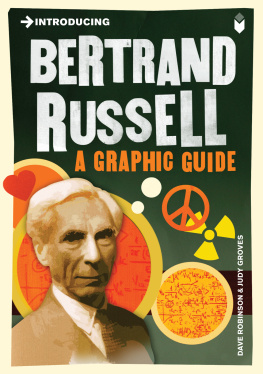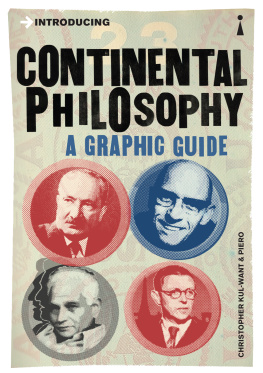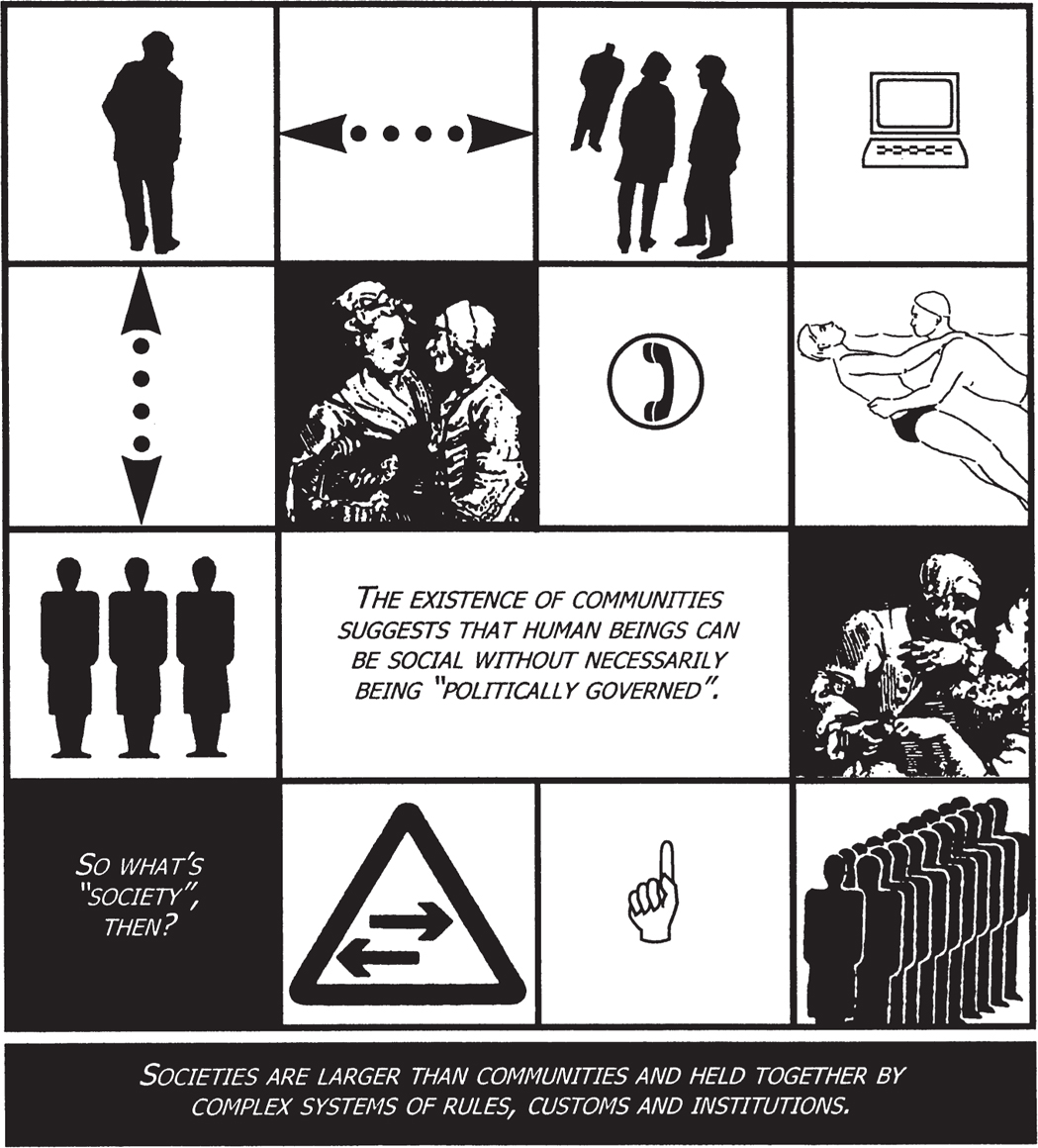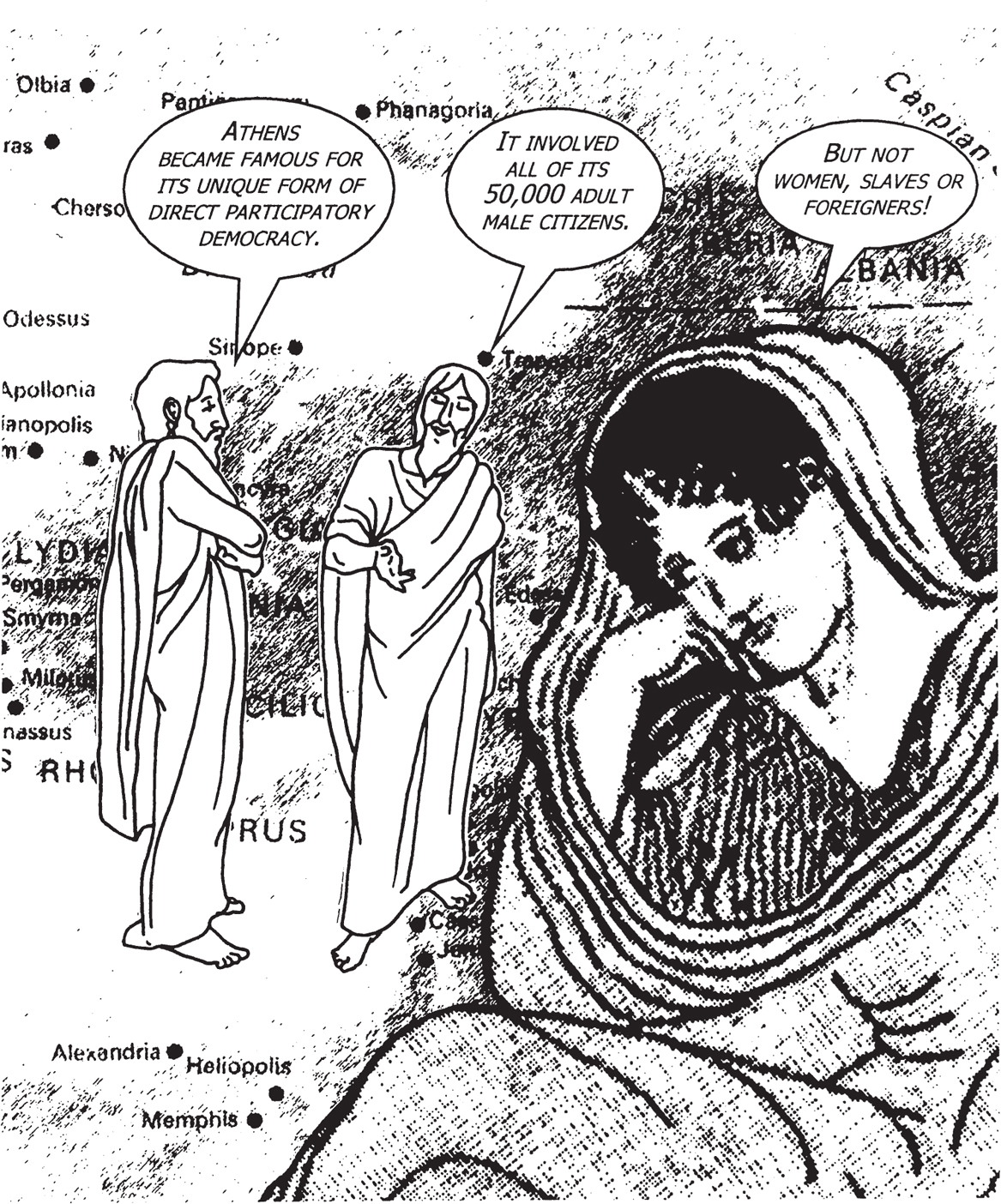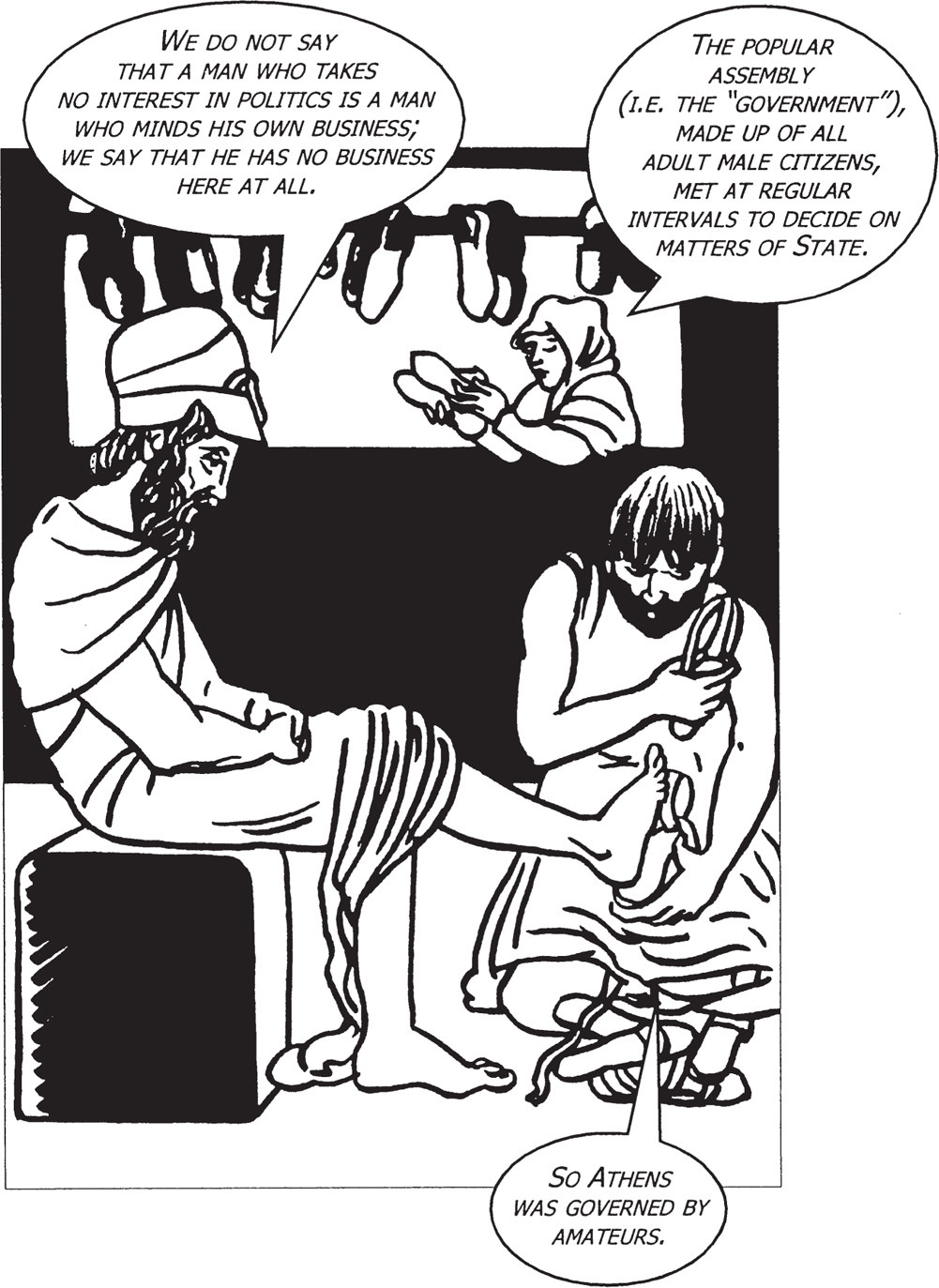Contents
Questions
Political philosophers ask questions about individuals, communities, society, the law, political power, the State, and about how they all relate.
Is it possible or desirable to say what human beings are really like?
What is society? Is it something more than the people who live in it? Or was the British Prime Minister Mrs Thatcher right to say There is no such thing as society?
What is the State? Is it an artificial construct or something that has naturally evolved?
How free can the State allow individual citizens to be? Are there good moral reasons why citizens are obliged to obey the law? To what extent does the State have the right to punish those who disobey its commands?
Is democracy the best form of government?
Should the State be interested in furthering economic equality? If so, should it be allowed to interfere with other peoples private property?
DO WE NEED GOVERNMENTS AT ALL?
Back to Basics
Many political philosophers begin by concentrating on individuals. After all, societies and states are made up of individuals first, and governments must come after. Are political institutions simply the end result of attempts to fulfil the essential and universal needs of individuals? But what if we have no real knowledge about the needs and purposes of human beings? Besides, we arent just dropped into society with all the ready-made capacities that make us human.
THERE CAN BE NO DOUBT THAT SOCIETY MAKES US.EVEN OUR MOST PRIVATE THOUGHTS DERIVE FROM LINGUISTIC RESOURCES THAT ARENT OUR OWN.BUT EVEN THOUGH WE MIGHT ALL BE DERIVATIVE SOCIAL PRODUCTS, NONE OF US FEEL WERE JUST ROBOTS.PARADOXICALLY, WE ARE MADE BY SOMETHING THAT WE FEEL WE HAVE THE RIGHT (AND DUTY) TO QUESTION.
Natural Communities
The word community suggests something immediate, local and praiseworthy. Political philosophers think of communities as small groups of people with shared values who enjoy solidarity with little need of laws or hierarchical chains of command.
THE EXISTENCE OF COMMUNITIES SUGGESTS THAT HUMAN BEINGS CAN BE SOCIAL WITHOUT NECESSARILY BEING POLITICALLY GOVERNED.SO WHATS SOCIETY, THEN?SOCIETIES ARE LARGER THAN COMMUNITIES AND HELD TOGETHER BY COMPLEX SYSTEMS OF RULES, CUSTOMS AND INSTITUTIONS.
17th-century political philosophers made distinctions between free associations of individuals societies, perhaps agreed on by some form of contract between individuals and States, which are constituted by specific hierarchical power structures and the threat of coercion.
Society and State
Is it possible that we are all social animals but not necessarily political ones? Where is the evidence for non-political societies? Or is this an idealistic fantasy? Some philosophers believe that distinctions made between societies and States only lead to confusion. Societies can only exist if they are political. Power and who has it are features of human life that never go away.
THE STATE IS DEFINED AS AN AREA OF TERRITORY WITH AN ORGANIZED LEGAL SYSTEM AND A GOVERNMENT THAT HAS A LEGITIMATE MONOPOLY OF FORCE OVER ITS CITIZENS.MODERN STATES HAVE ENORMOUS AND OFTEN INTRUSIVE AUTHORITYTHATS WHY PHILOSOPHERS ENDLESSLY REDEFINE WORDS LIKE CONSENT AUTHORITY AND OBLIGATION.
What is Political Philosophy?
Most modern philosophers accept that moral and political propositions have no factual or logical status. Hence, it is impossible to prescribe what States should be or define what ought to be our relationship to them. Providing definitive answers to political problems must be ruled out.
ALL THAT PHILOSOPHERS CAN DO IS ANALYZE AND MAKE MORE PRECISE THE CONCEPTS WE USE IN EVERYDAY SPEECH SUCH AS POWER, LAW RIGHTS AND SO ON. BUT POLITICS IS A VERY PRACTICAL AND IMPORTANT REALITY WE EXPECT ADVICE FROM PHILOSOPHERS, NOT MERELY ANALYSIS OF CONCEPTS.
But political philosophy is as ideological as any other kind of discourse. We accept from it what agrees with our normal core beliefs and values. This is why all political concepts are always essentially contrasted.
Origins in Ancient Greece
The first people to write about political philosophy were the ancient Greeks. To begin with they were stateless semi-nomadic tribes who finally settled all over the coastal regions of the Aegean and Mediterranean.
WE WERE WARRIORS RULED BY WARLORDS. WE PLACED A HIGH VALUE ON COMRADESHIP, LOYALTY AND COURAGE. DIFFERENT WARRING TRIBES THEN CONGREGATED INTO LARGER UNITS FOR DEFENCE PURPOSES AND GRADUALLY ESTABLISHED CITY STATES LIKE ATHENS AND SPARTA.
The Polis or City State was usually small and independent, and each one was ruled by its own unique kind of government.
The City State of Athens
The most interesting and influential Polis was Athens, which experienced all sorts of governments. Political power had originally rested in the hands of a kind of aristocracy, similar to a tribal council, but gradually the citizen body itself acquired more and more power, and eventually ruled Athens between 461 and 322 BC.
ATHENS BECAME FAMOUS FOR ITS UNIQUE FORM OF DIRECT PARTICIPATORY DEMOCRACY. IT INVOLVED ALL OF ITS 50,000 ADULT MALE CITIZENS. BUT NOT WOMEN, SLAVES OR FOREIGNERS!
The Duties of Citizens
Being an Athenian citizen was a serious business, involving duties as well as rights.
WE DO NOT SAY THAT A MAN WHO TAKES NO INTEREST IN POLITICS IS A MAN WHO MINDS HIS OWN BUSINESS; WE SAY THAT HE HAS NO BUSINESS HERE AT ALL. THE POPULAR ASSEMBLY (I.E. THE GOVERNMENT), MADE UP OF ALL ADULT MALE CITIZENS, MET AT REGULAR INTERVALS TO DECIDE ON MATTERS OF STATE. SO ATHENS WAS GOVERNED BY AMATEURS.
The population was small enough for this kind of pure democracy to work, and most Athenians seemed to have been immensely proud of their State. They identified with it so completely that it was virtually impossible for any of them to imagine a life outside it.
Direct Democracy
Athenians fought alongside each other in battle and were more tribal than we are now. Their social and political world was very different from ours. They had little conception of the individual as something separate from the citizen and only very hazy notions of private rights. Society and State were indistinguishable.

